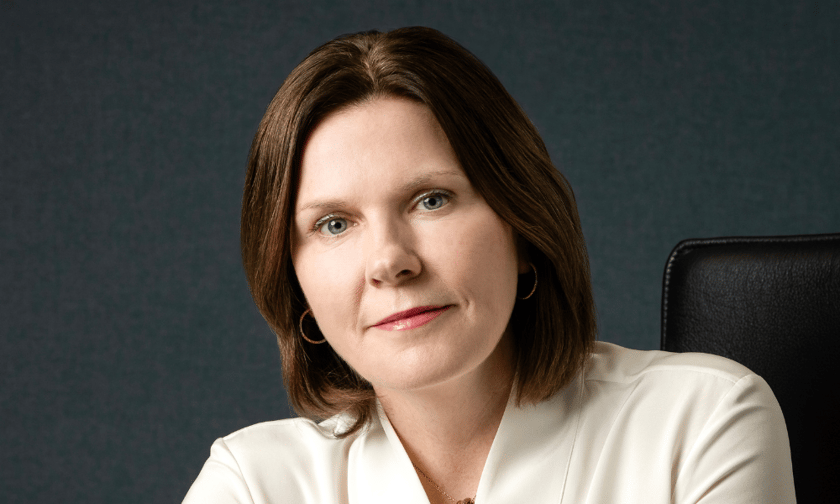

When first announced as the new CEO of AXA UK & Ireland, Tara Foley (pictured) affirmed her commitment to implementing its ‘2024 to 2026 Strategy’, in a bid to continue to grow the business and provide the best support possible to customers and clients.
A year on, Foley (pictured) reflected on some of the key milestones achieved towards this ambition, against a “challenging” backdrop. 2023 was a very difficult year and not just for the insurance industry, she said, with record levels of inflation, supply chain issues and a turbulent labour market coming together to create a polycrisis environment. “One of the primary objectives that I had for 2024 was to get us back to stability and back to delivering our full potential,” she said. “I’m delighted to say that we’ve achieved that. We’re really happy with our half-year numbers and with the trajectory for the second half of the year.
“But it’s not all about the numbers. We’ve done a lot to build out the DNA of our organisation and to make sure AXA is seen by colleagues as a great place to work. We’ve seen our engagement scores increase, which I’m delighted with because it was difficult. We had to double down on a lot of activities to regain stability.”
Foley noted the importance of some sizeable acquisitions. AXA completed its deal for the second biggest health insurance company in Ireland, Laya Healthcare Limited, diversifing the nature of its Irish business, which had formerly been primarily GI. “We also bought HBSUK in February of last year, which again strengthened our health business,” she said. “And we’ve also looked at growth opportunities across all our businesses.”
A key area of focus for Foley and her team is a solidified partnership with AXA XL, and finding ways for the business units to get to know each other better, in order to bring the full strength of both organisations to the market. This collaboration has already started to yield significant fruits, with circa 60 people across the two entities now focusing on winning business in the mid-market segment, and cementing two major deals – one with a European-wide leisure chain and the other with a UK water company.
ESG is also high on the agenda for AXA. Being in the insurance industry means you simply can’t afford to ignore pressing risks, including how the nature of risk itself is changing, Foley said, and insurance businesses have a responsibility to invest in research, raising awarnesss, and evolving their offerings to be more relevant to today’s climate. She highlighted the AXA Climate School as an example of what this investment looks like, and noted that, in 2024, the business made certain modules from its program available free of charge to all its brokers and their clients.
“We're also looking closely at the effects of climate on things like house building, which is very topical,” she said. “We [recognise] the stated objective of the new Labour government around the quantity of houses that will need to be built. And we are active in the conversation around where they should be built and how they should be built because we must think about what's going to happen to the country over the course of the next 10, 20, 30 years.”
Sharing some of the themes of her leadership style, Foley emphasised the importance of curiosity, warmth, energy and resilience. These traits find a natural home in her passion for diversity, equity & inclusion conversations and initiatives. “It’s a cause that’s close to my heart,” she said. “I want to make sure that we have an organisation where everyone feels comfortable and that they can have the career of their choosing without facing any unnecessary obstacles.”
With that in mind, her team at AXA UK&I has rolled out a variety of new ‘We Care’ packages to support colleagues who have caring responsibilities or who need additional support from their employers. Last year, AXA UK became the first insurer recognised as an age-aware accredited employer by 55/Redefined, with Foley noting that age equality is an increasingly important consideration, given that the business has four generations of people working side by side.
“Thinking about your work environment, your recruitment process, all of that is really important,” she said.”We reported to the Treasury in September of last year that we had 42% of our leader and above positions held by women, which we’re really pleased about. We have networks of colleagues on topics that are of interest to them, like mind health, like the carers network, like menopause, etc. And those colleagues are very active in raising awareness… around how we can all help create an environment that makes AXA an even better place to work in.”
